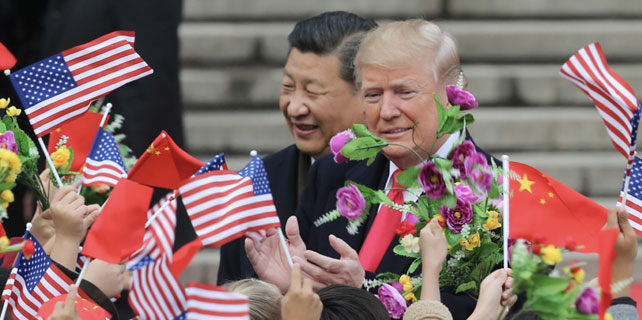Cross-Straits youth employment, entrepreneurship bases created
Many provinces and cities on the Chinese mainland are introducing favorable investment policies to help young people from Taiwan start their careers, especially in technology-intensive industries.
The Taiwan Affairs Office of the State Council has set up 53 cross-Straits youth employment and entrepreneurship bases in 12 provinces and cities across the country to support young people from Taiwan. The bases provide consultation and financial support.
Many local governments also offer preferential policies, including tax deductions, and some even invite successful entrepreneurs to give lectures and advice to new arrivals.
"A growing number of young people from Taiwan are choosing to work or start their careers on the mainland," said Li Quanlin, former vice-governor of Jiangsu province and one of the organizers of the recently convened 2017 Cross-Straits Entrepreneurs Zijin Mountain Summit.
"It has become a trend. The younger generation is the future of cross-Straits cooperation," Li said.
According to the official website of the government of Jiangsu, which attracts about 33 percent of Taiwan's total investment on the mainland, the province approved 351 investment projects from Taiwan between January and August.
So far, the province has attracted 26,000 such projects. In more than 6,000 of those, the investment exceeded $10 million.
"The mainland has a larger market and more opportunities," said Wang Tsun-huang, executive vice-president of the Taiwan Youth Entrepreneurship Institute, which was established in Nanjing in July.
"Many young people from Taiwan have come to the mainland and do well in many areas, including the cultural and creative industries."
According to the provincial government, about 2,800 young people from Taiwan started businesses in Jiangsu in 2016.
Lou Qinjian, Party chief of Jiangsu, said the province will continue to offer preferential policies and establish more entrepreneurship bases to help people from Taiwan study, work and live on the mainland.
"We encourage universities and young people from Jiangsu and Taiwan to form effective communication systems," said Lou. "Through communication they can become good friends and good partners that grow together."
Wang Jianmin, a researcher at the Chinese Academy of Social Sciences' Institute of Taiwan Studies, said that businesspeople from Taiwan should focus on the so-called new economies - the digital, sharing and green sectors.
"They should not rely on cheap land and labor provided by the mainland to develop labor-intensive industries as they used to do," Wang said. "They need to adapt to new circumstances and innovate."
cangwei@chinadaily.com.cn
(China Daily 11/10/2017 page5)









